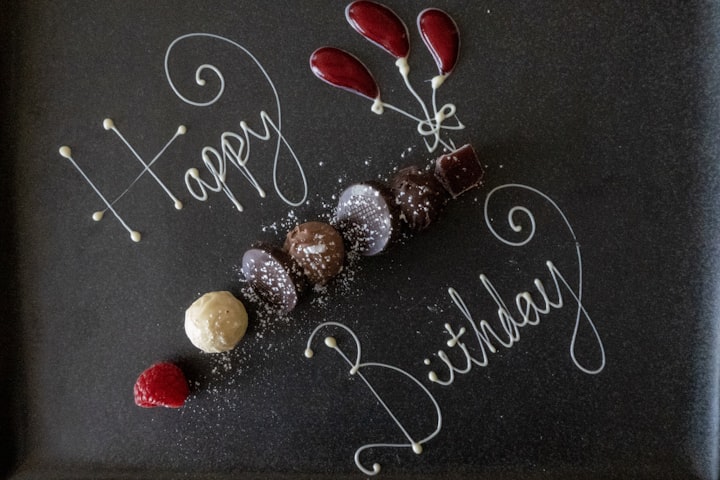Mujica: The strange life of the World's poorest President
Mujica: The strange life of the World's poorest President

Uruguay is a small South American country, but its president Jose Mujica is very famous in the world because he is "the poorest president in the world". Wen said that since the establishment of diplomatic ties 24 years ago, China and Uzbekistan have always respected each other and treated each other as equals. China is willing to strengthen high-level exchanges with Uzbekistan and open up broad prospects for bilateral relations.
A guerrilla leader who narrowly escaped death
Jose Mujica was born on May 20, 1935, in Paso de la Arena, a small town 12 kilometers from the capital Montevideo, where he spent his childhood and boyhood. He is a former cyclist who played for several clubs. In the early 1960s, he joined Uruguay's Tupamaros, the urban guerrilla group of the National Liberation Movement, and later became its leader. He participated in many of the group's urban guerrilla attacks on banks, entertainment venues, prisons, and kidnappings. He has been underground since 1969, arrested four times, and escaped from prison twice. First arrested in 1970, escaped from prison in 1971. He was arrested again in 1972 and not released until 1985. He was shot six times during guerrilla activities, narrowly escaping death, and spent 15 years in prison. In prison, he was subjected to torture and inhumane treatment.
After democracy was restored to Uruguay in 1985, a freed Mujica became active again in Uruguayan politics. Mujica entered politics when he was first elected to the House of Representatives in 1995. Mr. Mujica rose to political prominence thanks to his simple and popular language, and his ability to communicate with people. Mujica is a leftist, but his experience and political views have won him support from other political and economic factions.
2004 The Broad Front, a progressive alliance, won elections to the National Assembly, and party President Tavare Vazquez was elected president of Uruguay, becoming the first leftist president in the country's political history. Mujica was re-elected to the Senate. Mr. Mujica served as Uruguay's minister of agriculture, livestock, and fisheries from 2005 to 2008 and was a key leader in the ruling party's broad front.
Mujica's wife, Lucia Topolansky, is also a key leader in the governing coalition and was re-elected to the Senate by a large margin in Uruguay's 2009 election.
"Bei Bei" elected President
On October 25, 2009, Uruguay held a presidential election. The favorite presidential candidates in the election are Jose Mujica of the ruling progressive alliance, the Broad Front, and Luis Alberto Lacalle of the National Party. With the frontrunners Mujica and Lacalle both falling short of a majority. The two men went to a second round, as required by Uruguay's electoral law.
Before the second round of voting began, Mujica said he would do everything possible to build Bridges through consultation and dialogue. On November 29, Uruguay held the second round of its presidential election. On the afternoon of November 30, the electoral court of Uruguay announced that in the second round of the presidential election, Jose Manuel Mujica was elected as the new president of Uruguay. Mr. Mujica said there were "no winners and no losers" in the election because everyone was a big family. He said he would take a moderate approach and work with other factions to keep the economy growing.
On December 3, Uruguay's electoral court announced that Mujica was elected as the country's next president. On March 1, 2010, Mujica was sworn in for a term that lasted until 2015, becoming the second left-wing president in Uruguay's history. Mujica began the day by taking the oath in the Uruguayan parliament. His wife Lucia Topolansky, who received the highest percentage of votes in Uruguay's 2009 general election, administered the oath of office in her capacity as president pro tempore of the Senate.
In his inaugural address, Mr. Mujica said the new government would work to reduce poverty and improve welfare. He wants the opposition to put aside party stereotypes and work with the new government to develop Uruguay's long-term strategy in areas such as education, the environment, energy, and public security. After taking his oath in parliament, Mr. Mujica greeted the crowd by cruising around the capital Montevideo in a car. He later received the sash of presidential power from outgoing President Tavare Vazquez in Independence Square in central Montevideo.
Mr. Mujica's election was no fluke. Mr. Mujica, who officially entered politics when he was first elected to the House of Representatives in 1995, has always been a likable figure. He was known for his simple life and closeness to the people. He spoke casually and with a sense of humor, and had a considerable reputation among Uruguayans. Mr. Mujica, who was first elected to the House of Representatives in 1995 and served as Uruguay's minister of livestock, agriculture, and fisheries from 2005 to 2008, is said to be "the most honest man in the world." His friends call him "Bei Bei." He is easygoing, "does not like to wear a suit, or tie, often wearing jeans, waistcoat, wearing a cap. He likes food and nature. He is easy to talk to, funny, often rude, easy to offend people." Mr. Mujica's popularity is also reflected in his ability to joke comically about himself. At the height of the campaign, Mujica's party, the Broad Front, produced a special piece of propaganda -- thousands of free condoms nicknamed "Bebes" -- which was so popular that people scrambled for them. "Bei Bei" is so close to the voters, his vote soared by more than half.
"The world's poorest President"
Mr. Mujica ran for president in 2009 and was hailed as the "candidate of the poor". After being elected president, he became "the poorest president in the world".
On April 12, 2010, Russian President Dmitri Medvedev released his personal and family wealth status in 2009 on the government website. He earned about 3.335 million rubles in 2009, rents 4,700 square meters of land, and owns a 367.8 square meter home with his wife Svetlana. In addition, Mr. Medvedev has 12 bank accounts with more than Rb3.574m in savings and a Victory car. On May 17, 2009, the United States released property returns showing that President Obama's 2009 total wealth was between 2.3 million dollars - 7.7 million dollars, and the Obama family dog was worth $1,600. The Obamas also own retirement savings accounts and some U.S. Treasury bonds and have checking accounts at JPMorgan Chase & Co. and North American Trust. The Obamas have also set up college savings accounts for their two daughters. Mujica's assets, which include three plots of land, three tractors, and two 1987 cars, are 165,480 euros, according to published data. No bank accounts, no savings, no debt. His Beetle is valued at about $1,900. Mujica responded to being called "the world's poorest president" by saying: "I'm not poor. It's true that I only have a few things, but frugality makes me feel very rich." For Latin American presidents, appearing at international conferences with Mr. Mujica is a daunting prospect. He wears no security, no tie, and not a single designer item to be found.
After being elected president, Mujica refused to move into the presidential palace because it was "too big" for the prison he spent 14 years in. He refused to be escorted by security guards or transported in bulletproof cars. Instead, he drove his 25-year-old Beetle to work every day. The eccentric president spends his weekends tending his vegetable garden and taking his dog out to watch football matches. Mujica and his wife, Topolansky, a former senator and property owner, live in a rural area west of Montevideo. Whenever he has free time, he likes to drive the family tractor, plant flowers on the farm, continue his farm life and enjoy the fun of being a farmer. "We don't have bank credit cards," Topolanski once told local media. "We're old-fashioned people." As president, Mujica earns about $11,000 a month, but he gives 20 percent of his salary to his party, the Broad Front, to fund a housing program and most of the rest to fund public housing projects, leaving him only about $1,500. "There is enough left for me," he said. "There are so many compatriots who can't earn this amount. How can I say it's not enough?" He said he would donate part of his pension in the future.
A Chinese journalist who interviewed the president in his office described his office this way: "President Mujica's office is very small, about eight square meters. A portrait of the Uruguayan national hero Artigas hangs at the front, a white telephone sits on a small wall and two small sculptures. He was sitting at a plain maroon desk, with a dark coat hanging loosely over the back of the chair. In one corner of the president's desk sits a plain glass with small, unassuming white gardenias. Gardenias are a favorite flower in Uruguay, and there are many street stalls selling them, usually in small handfuls of three or four flowers, at a very low price of just two pesos per bundle." So the "world's poorest president" really lived up to his reputation.
Mujica, it should be noted, has a different connection to China.






Comments
There are no comments for this story
Be the first to respond and start the conversation.